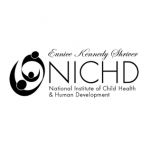*NEW* NICHD Joins RFA Call for COVID-19 Administrative Supplements
Posted: 4/25/2020 (Funding)

If you have a current NICHD grant you may apply for an administrative supplement to address COVID-19 impacts on vulnerable populations. NICHD has particular interests in COVID-19-related research on vulnerable populations falling within the NICHD scientific mission area, including pregnant and post-partum women, infants, children, and adolescents; individuals with physical and/or intellectual disabilities; and children who are homeless or in foster care.
NICHD also has particular interest in outcomes falling within its mission, including child abuse and neglect, intimate partner violence, learning outcomes, maternal, infant, child, and adolescent morbidity and mortality, changes in fertility and pregnancy outcomes, and access to health care, including reproductive health care.
Additional research topics of interest to NICHD that fall within the scope of this NOSI include, but are not limited to:
- The roles of living arrangements and family and household characteristics and processes, social and community influences, and social networks on COVID-19-related vulnerabilities, responses, and outcomes.
- Differential impacts of and responses to COVID-19, COVID-19 mitigation efforts and downstream effects mitigation on specific subpopulations, for example, groups defined by age, race/ethnicity, urban/rural location or socioeconomic status.
- Studies of increased usage of telemedicine for routine well baby and pediatric health and developmental screenings and their impact on immunization schedules on child and adolescent health outcomes.
- Studies of the digital divide – children and families without reliable access to the internet now that schools and libraries have closed, and impact on health behaviors and outcomes as well as health care access.
- Studies on increased screen time, digital media use and rapid conversion to homeschooling/distance learning on child and adolescent cognitive and social-emotional development, peer interactions and family functioning.
- Studies examining risk factors, resilience and coping for families experiencing multiple stressors (e.g., health, economic and emotional) and symptomology (e.g., anxiety, depression) and the short and long-term sequelae for child, adolescent and family functioning.